Kenneth Maynard Lawrence
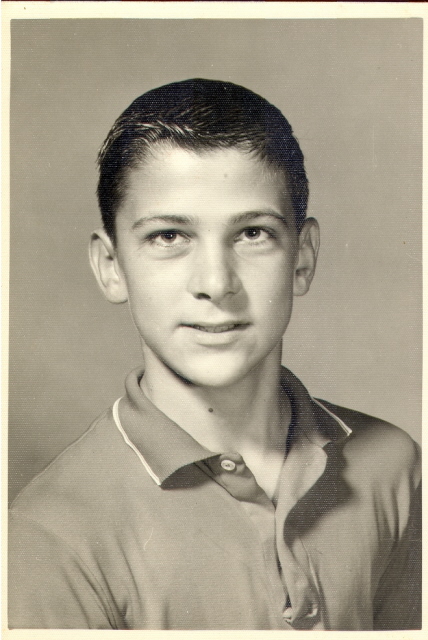

Describe a day in your life in a household with nine other siblings.
I had 8, and the older ones were already moved out. So actually there were probably only about 3 or 4 others, and the other ones that were a lot older than me, they were already moved out by the time I was old enough to realize what was going on. And you know, just like any other kid…get up, go to school, have all the after school extra-curricular activities…basketball, baseball, boy scouts, cub scouts, and get up and do the chores, mother would make us mow the yard, and you know do all those things regular kids would have to do.
What effect did being the youngest child in your family have on you socially, behaviorally, morally etcetera? Did it teach you anything?
I think being the youngest, you get a lot of parenting from your older brothers and sisters, you know what I mean? They teach you things like; Eddie my older brother has taught me how to play golf. Older brother take you outside and play sports with you, and you know, they set examples for you when there's that big of an age difference. They set a lot of examples, as far as school, their career and shit like that.
How were you disciplined at home and at school?
How was I disciplined? I didn't have to be disciplined at school, I never was. At home, my mother was the disciplinarian mainly, my father never had to discipline anyone, or discipline me. They would put me on restriction I guess or scolding you when you needed it.
As a child, what would you do recreationally?
I said. Baseball, basketball, we had a boat; we'd go skiing on weekends. My father had a boat; we'd go to the lake with the family. Recreationally, whatever sport was in season.
What was your first occupation?
First job I ever had….at a Howard Johnson motel, just working, cleaning the pool, doing stuff like that. I made like 2 bucks an hour, I worked there like a week. I guess my full time job during the summer was working…you know what, I guess helping my uncle, I was a painter's helper one summer, all summer long.
What was your first vehicle?
A 1958 dodge.
Dodge what?
A dodge heap.
What was MacArthur High School like for you?
It was good, it was a small school. You know we'd have our own little cliques like everybody did in high school. I hung out with athletes mainly. It goes by fast.
Was there any discrimination in your school or neighborhood?
No. We didn't have one black at our high school. The Hispanics were…not that many really. Mostly white kids, we didn't really even think about it.
What was your view of the Vietnam War?
…glad I didn't have to go, it was the draft and the lottery at that time. You know, I didn't quite understand it; we were only 18 years old. We didn't want to have too many political views on it but uh… we didn't know why we were fighting in it really. But definitely my main intention was to stay in school so we didn't have to go.
What about your families?
Yeah. We didn't talk politics much, or about the war back then.
What do you think shaped or influenced your political views the most at that time?
My father was a democrat if I remember right, you know, he was a working man. I'm sure he thought he was represented better by the Democratic Party. Once I got in school and college, and got my own views, and studied political science, I always realized that I leaned more to the right.
Did any of your brothers or other family members serve militarily at all?
Yeah, a brother. Retired in the Navy. Jimmy.
And your dad, what about him?
He was drafted into the army right out of high school during World War II, and fought in World War II.
When did you start playing basketball?
7th grade, or with my mother out in the yard. She used to play basketball when she was in school. We always had a goal up outside, a wooden piece of crap on the dirt floor.
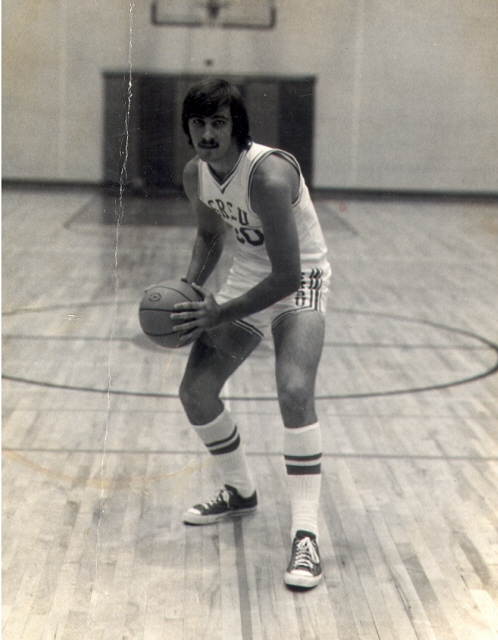
Describe your life and social environment at Sul Ross.
It strictly bordered around athletics and grades and classes. I was a member of a fraternity; The Tau Kappa Epsilon, TKE. So I hung out with them on weekends. It was pretty much segregated, the blacks did their deal, and we did our deal. But it was just that and school and dating. Just trying to get through school.
What factors made you decided to enroll in college at Alpine?
Free. I was on scholarship, and didn't want to be a financial burden to my parents, and got that done. So…that was it, they offered me a scholarship, that was the only reason I would have gone there.
Do you have any memorable experiences from basketball road trips, practices, or games?
Yeah, too many...I hit the winning shot…a buzzer-beater at San Angelo State, a conference game when I was a freshman. A couple guys had fouled out, and he put me in at the last minute and had a break away lay-up on them.
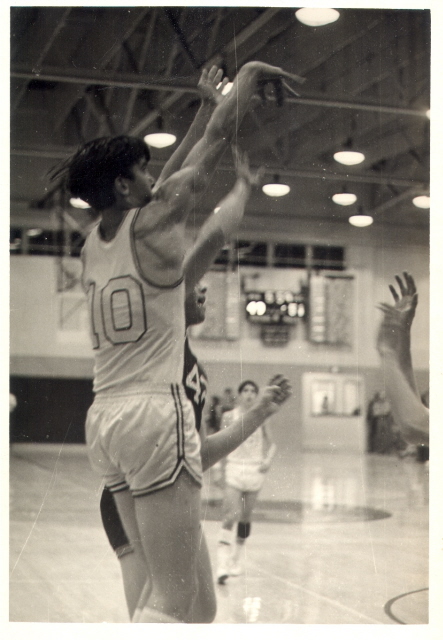
How and where did you meet Anita?
At a country western night club…Desperado's.
How long did you two date prior to deciding to get married?
3 or 4 years…we met in 81'…when did we get married?
What lead you into working at Luby's?
My first wife's uncle was a manager there and I worked for traveler's insurance right out of college, It wasn't for me, and I talked to him and he showed me the opportunities there, mainly financial. So I signed on with them.
As general manager, what were your job responsibilities?
At Luby's it's everything; purchasing, scheduling, menu planning, watching all the waste, watching all the aspects of the profit and loss statement, P and L. The bottom line is, you're paid on commission it wasn't a great salary, so every aspect of it, whatever penny you could save on food, labor, operational costs, it helped you and reflected in your income.
Was it quite a promotion from manager to general manager?
Oh yeah, your income doubles overnight. You go from…50…to 80 up to 100,160. It doubles. The assistant manager makes twice what the manager makes; the associate manager is the second guy. The regular old assistant manager is on like a salary; 2,500 a month, 3,000 a month, whatever. I mean you can make 3 times whatever, 4 times whatever he makes.
What happened with the "City Hall Grill" as far as it being decided to be sold?
When I got out of there, there was just nobody running it. When I decided to leave, and go into the mortgage business, there was no one really left to run it. The business just kind of dwindled when I left. So we were better off just capitalizing on the real estate investment portion of it.
Describe your job as a caddy.
I just decided to make a little extra money and just chill out up there, and be a caddy at the number one resort golf course in the world.
What golf course was it at?
Pebble Beach…and Spyglass Hill
Can you describe your job, as far as what it entailed? Like during a typical day?
Yeah, you just show up at the caddy barn, and you sit there and when somebody takes a caddy out…its high end, it's a very expensive golf course. Caddies make 1,000 a week caddying…cash. So you sit there on the bench and wait your turn and when customers come up…hitch the old bags on your back and pack em' 18 holes…doubles, carry two bags at a time…two light bags usually.
Between California and Texas, which life do you feel was more preferable to you at the time?
I liked California just because the responsibilities weren't as vast; you know the hours were just horrible in the restaurant business. So with 20 years in the restaurant business, being stuck inside, now here we are, able to kick it in Pebble Beach. You know, I could spend more time with ya'll and get up and cook dinners and breakfasts and go to the wharf and all kinds of fun stuff. So that's an easy choice.
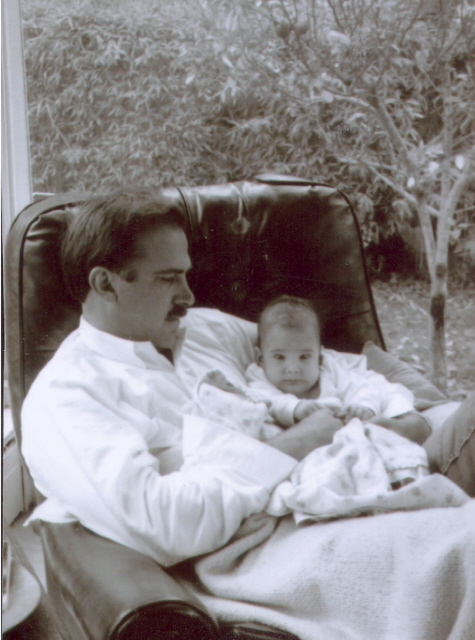
Is there anything you would like to add?
No, man. That's me in a nutshell.
Who made those questions up? You?
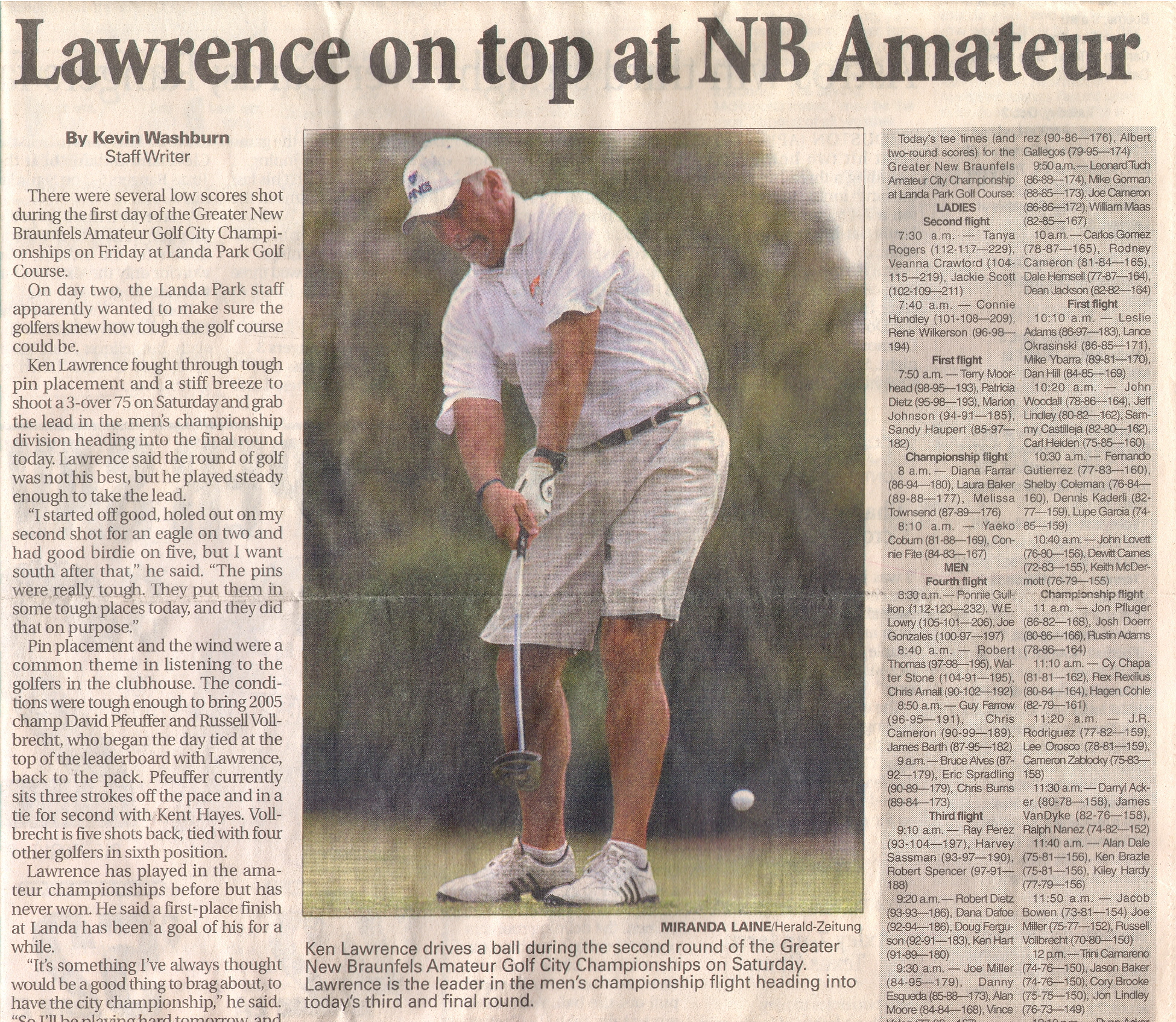
-From participating in this interview, I noticed the parallels between my father's life and my own. It revealed to me the role that athletics has played throughout my father's, as well as my family's life. It helped me distinguish where some of my father's core ideals have derived from, for example, his work ethic, self discipline, and interpersonal and management skills.
-To me, the question of "Was there any discrimination in your school or neighborhood?" elicited an ironic response of "No, we didn't have one black at our high school…" While the interviewee's response stated that discrimination was not prevalent at his high school, the manner in which he stated it subtly revealed that there may have been discrimination in his society.
-Overall, I think that this could be an extremely effective medium through which to learn about the past. While some students may not be able to see the importance of History as seen through their textbooks, utilizing the oral history method via the interview process, makes the past's significance strikingly clear.
The Handbook of Texas Online is a multidisciplinary encyclopedia of Texas history, geography, and culture sponsored by the Texas State Historical Association and the General Libraries at UT-Austin. It was produced in partnership with the College of Liberal Arts and the General Libraries at the University of Texas at Austin. Copyright © The Texas State Historical Association. Last Updated: May 6, 2004.